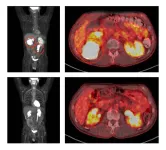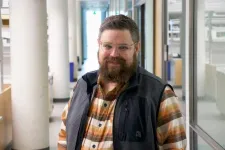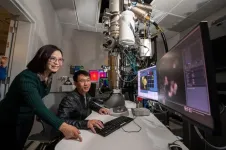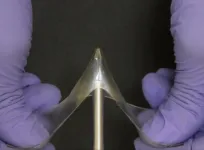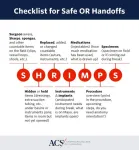An international team, including researchers from Mass General Brigham, has been searching for protective genetic variants in a family that includes more than 1,000 individuals who are genetically predisposed to develop early onset Alzheimer’s disease in their 40s. Previously, the researchers identified the “Christchurch variant” as potentially protective against Alzheimer’s based on one family member who had two copies of this variant and was expected to develop dementia in her 40s, but only developed cognitive impairment 30 years after the expected age. The new study finds that having just one copy of the APOE3 Christchurch variant is enough to confer a degree of protection, adding new evidence that the research could be pointing to a new therapeutic target. A scientific story that began with a discovery in just one extraordinary patient is now panning out. In 2019, an international team that included researchers from two Mass General Brigham hospitals — Mass Eye and Ear and Massachusetts General Hospital (MGH)— reported on the case of a patient who did not develop cognitive impairment until her late 70s, despite being part of a family at extremely high genetic risk for developing early-onset Alzheimer’s disease. In addition to having the genetic variant that causes an autosomal dominant form of Alzheimer’s disease, the woman had two copies of a rare variant of the APOE3 gene, called Christchurch (APOE3Ch). Now, the research team reports on an additional 27 members of the family who carry just one copy of the variant and experienced delayed disease onset. The study, published in The New England Journal of Medicine, represents the first evidence that having one copy of the Christchurch variant may confer some level of protection against autosomal dominant Alzheimer’s disease, even if less pronounced compared to when two copies are present. The findings have important implications for drug development, suggesting the potential effects of targeting this genetic pathway.
“As a clinician, I am highly encouraged by our findings, as they suggest the potential for delaying cognitive decline and dementia in older individuals. Now we must leverage this new knowledge to develop effective treatments for dementia prevention,” said co-first author Yakeel T. Quiroz, PhD, clinical neuropsychologist and neuroimaging researcher and director of the Familial Dementia Neuroimaging Lab in the Departments of Psychiatry and Neurology at Massachusetts General Hospital.“ As a neuroscientist, I’m thrilled by our findings because they underscore the complex relationship between APOE and a deterministic mutation for Alzheimer’s disease, potentially paving the way for innovative treatment approaches for Alzheimer’s disease, including targeting APOE-related pathways.”
Quiroz and her team at MGH and co-senior study author Joseph Arboleda-Velasquez, MD, PhD, of Mass Eye and Ear, have been working with their colleagues in Colombia as part of the MGH Colombia-Boston (COLBOS) biomarker study to examine family members of the world’s largest-known kindred with a genetic variant called the “Paisa” mutation (Presenilin-1 E280A). The Paisa mutation is an autosomal dominant variant, meaning that inheriting just one copy of the mutated gene from a parent is enough to cause a genetic condition. The family consists of about 6,000 blood relatives, and about 1,200 carry the variant. Carriers of this Paisa variant are destined to develop Alzheimer’s disease; most develop mild cognitive impairment in their 40s, dementia in their 50s, and die from complications of dementia in their 60s. Francisco Lopera, MD, director of the Grupo de Neurociencias de Antioquia in Medellín, Colombia, and co-senior author of the NEJM paper, is the neurologist who discovered this family and has been following them for the last 40 years.
In addition to the 2019 case report about a family member with two copies of the Christchurch variant, molecular studies have added further biological evidence that the variant could be playing a protective role. In 2023, the research team identified another “resiliency gene variant” called Reelin-COLBOS that appeared to delay the onset of symptoms in other family members. The new study in NEJM reports on a larger group of individuals from this family who carry a copy of the Christchurch variant.
“Our original study told us that protection was possible, and that was an important insight. But if a person needs two copies of a rare genetic variant, it just comes down to luck,” said co-senior author Joseph F. Arboleda-Velasquez, MD, PhD, an associate scientist at Mass Eye and Ear. “Our new study is significant because it increases our confidence that this target is not only protective, but druggable. We think that therapeutics inspired by protected humans are much more likely to work and to be safer.”
The research team assessed 1,077 descendants of the Colombian family. They identified 27 family members who carried both Paisa mutation and one copy of the Christchurch variant. On average, these family members began showing signs of cognitive impairment at age 52, compared to a matched group of family members who did not have the variant, who began showing signs at age 47. The family members also showed signs of dementia four years later than those who did not carry the variant.
Two of these individuals had functional brain imaging performed. Scans showed lower levels of tau and preserved metabolic activity in areas typically involved in Alzheimer’s disease, even in the presence of amyloid plaques — proteins considered a hallmark of Alzheimer’s disease. The team also analyzed autopsy samples from four deceased individuals that showed less pathology in blood vessels, a characteristic that appears important for the protective effects of APOE3 Christchurch.
The authors note that their study was limited to a relatively small number of people carrying both the Paisa and Christchurch variants, and to a single, extended family. They write that further studies involving larger and more ethnically diverse samples of Alzheimer’s disease may shed further light on the protective effect of the Christchurch variant and help determine if findings from the family in Colombia could translate into discoveries relevant for treating sporadic forms of Alzheimer’s disease.
“As a next step, we are currently focused on improving our understanding of the brain resilience among the remaining family members who carry one copy of the Christchurch variant. This involves conducting structural and functional MRI scans and cognitive evaluations, as well as analyzing blood samples to assess their protein and biomarker profiles,” said Quiroz. “The unwavering commitment to research shown by our Colombian patients with autosomal dominant Alzheimer’s and their families has been indispensable in making this study possible and allowing us to continue to work toward interventions for this devastating disease.”
Authorship: Quiroz’s co-first authors on the paper included three investigators from University of Antioquia in Colombia: David Aguillon, MD, PhD, Daniel C. Aguirre-Acevedo, PhD, and Daniel Vasquez, MD. In addition to Quiroz and Arboleda-Velasquez, Mass General Brigham authors include Justin S. Sanchez, Liliana Ramirez-Gomez, Keith Johnson, Reisa A. Sperling, Clara Vila-Castelar, Stephanie Langella, Elizabeth Kaplan, and Paula Perez-Corredor. Other co-authors include Yesica Zuluaga, Ana Y. Baena, Lucia Madrigal, Liliana Hincapié, Rafael Posada-Duque, Jessica L. Littau, Nelson D. Villalba, Gloria Garcia, Sofia Rassi Vargas, J. Alejandro Ossa, Pablo Valderrama-Carmona, Susanne Krasemann, Markus Glatzel, Kenneth S. Kosik, Eric M. Reiman, and Diego Sepulveda-Falla.
Disclosures: Drs. Quiroz, Arboleda-Velasquez, Lopera and Reiman are named as coinventors in a patent filed by Mass General Brigham related to ApoE targeting therapeutics. Dr. Arboleda-Velasquez is a co-founder of Epoch Biotech, a company developing resilient case-inspired therapeutics. Dr. Quiroz serves as consultant for Biogen.
Funding: Supported by grants from Good Ventures (to Drs. Krasemann and Sepulveda-Falla and to Dr. Arboleda-Velasquez), by the Remondi Family Foundation (to Dr. Arboleda- Velasquez), by grants (R01AG054671, to Dr. Quiroz; RF1AG077627, to Drs. Quiroz and Lopera; K99AG073452, to Dr. Vila-Castelar; and P30AG072980, to Dr. Reiman) from the National Institute on Aging (NIA), by the Massachusetts General Hospital (MGH) Executive Committee on Research (MGH Research Scholar Award, to Dr. Quiroz), by the Alzheimer’s Association (to Dr. Quiroz), by a grant (RM1NS132996, to Drs. Quiroz, Lopera, and Arboleda-Velasquez) from the National Institute of Neurological Disorders and Stroke (NINDS), by the National Institutes of Health (to Dr. Lopera), by Roche (to Dr. Lopera), by the Banner Alzheimer’s Foundation for the Alzheimer’s Prevention Initiative Colombia Registry and the Alzheimer’s Prevention Initiative (API) and the API ADAD Colombia Trial (to Drs. Reiman and Lopera), by a joint grant (RF1NS110048, to Dr. Sepulveda-Falla) from NINDS and NIA, by a grant from the Werner Otto Foundation (to Drs. Krasemann and Sepulveda-Falla), by the German Federal Ministry of Education and Research (UndoAD-Project, to Drs. Glatzel and Sepulveda-Falla), by grants (KR 1737/2-1, to Dr. Krasemann; and SFB877, to Dr. Glatzel) from the German Research Foundation, by an Alzheimer’s Association Research Fellowship (to Dr. Langella), and by the NOMIS Foundation (to Dr. Reiman).
Paper cited: Quiroz YT et al. “APOE3 Christchurch Heterozygosity and Autosomal Dominant Alzheimer’s Disease” NEJM DOI: 10.1056/NEJMoa2308583
Alzheimer’s Disease Research News
###
About Mass General Brigham
Mass General Brigham is an integrated academic health care system, uniting great minds to solve the hardest problems in medicine for our communities and the world. Mass General Brigham connects a full continuum of care across a system of academic medical centers, community and specialty hospitals, a health insurance plan, physician networks, community health centers, home care, and long-term care services. Mass General Brigham is a nonprofit organization committed to patient care, research, teaching, and service to the community. In addition, Mass General Brigham is one of the nation’s leading biomedical research organizations with several Harvard Medical School teaching hospitals. For more information, please visit massgeneralbrigham.org.
END
